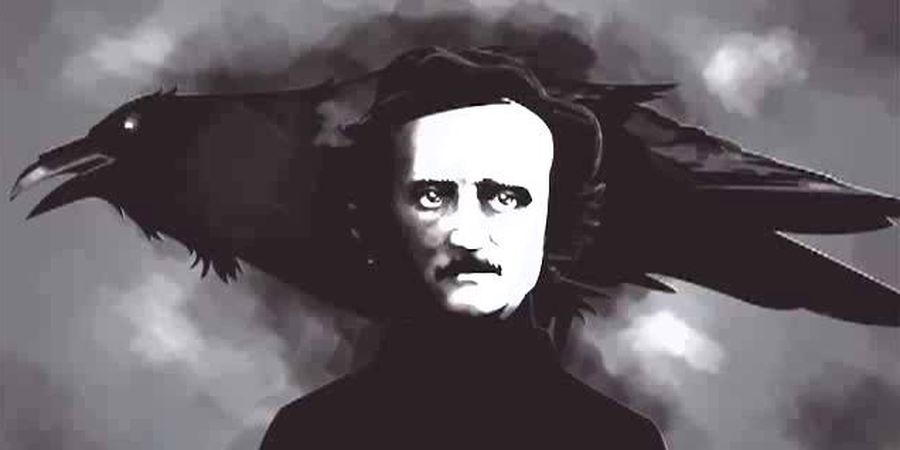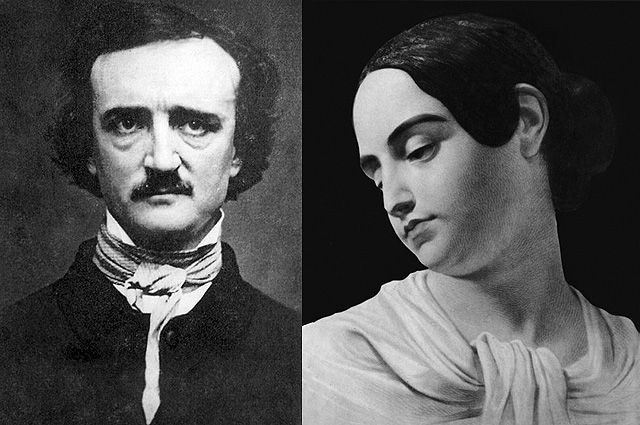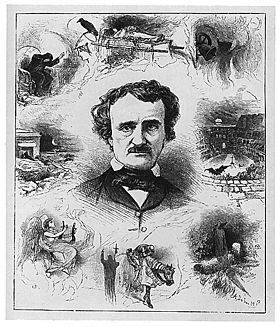Never Before, 'Nevermore' Edgar Allan Poe

Never Before, 'Nevermore' Edgar Allan Poe
Edgar Allan Poe belonged to the first, struggling generation of professional writers in America. Ralph Waldo Emerson had his private wealth, Nathaniel Hawthorne had his job at the Customs House, and Louisa May Alcott had her best seller, but these were rare comforts. In the first half of the eighteenth century, to live upon what you earned as a writer, as Melville and Whitman and Poe tried to do, was to invite poverty and constraint.

But Poe's highly impoverished and implausible life was a special case, an elaborate, self-conscious melodrama, Oscar Wilde without the humour.
Poe's natural parents’
With both Poe's natural parents’ itinerant actors, theatre was certainly in his blood. But the father abandoned the family when he was one, and the mother died when he was two, and Poe was taken in by John Allan, a prosperous Richmond, Virginia trader. Poe's foster-mother doted on him, but Mr. Allan was a strict, practical, businessman -- three things Poe was not. Poe read, and ran up debts, and wrote poetry; when Mrs. Allan died, Mr. Allan wrote Poe out of his very substantial will. For his entire adult life, Poe was oppressively, often desperately, poor.
Poverty certainly explains some of his extravagant -- and unethical -- self-promotion. He costumed himself in a black suit, a black cape, a broad-brimmed black hat, and a 'doomed-romantic' air. He wrote poetry elegizing a life spent "alone in a world of moan," one upon which the fates had ganged up:
I could not love except where Death Was mingling his with Beauty's breath -- Or Hymen, Time and Destiny Were stalking between her and me.
He padded his past with casual lies -- that his parents died in a famous fire, that he fought famously in a Russian war, that he was a grandson of Benedict Arnold. And he borrowed more than money: lines from Coleridge, rhythms from Tennyson, his brooding, "nevermore" raven from Dickens's Barnaby Rudge.
As a writer, Poe did not need such poses; as a person, he seemed addicted to these, and darker, habits. He was a respected and tireless magazine editor, but his binges of drinking and opium-taking would cause him to go missing for days -- or, worse, go to work. Each time that he was fired his small circle of supporters, upon which he depended for handouts, would get even smaller.
Relationships with Women
His relationships with women also seemed driven by dependency. The most important of these, a muddled and murky triangle with his aunt and young cousin begun when he was in his early 20s. He was guest, then lodger, then teacher and then pretend-family friend: aunt was "mother" in his letters and poems to her, and in her letters about Edgar Allan Poe to "my Eddy" she called young Virginia "sis." He became real family in 1835, when he and the thirteen-year-old Virginia married. For a dozen years the three of them moved from city to city, Poe struggling with his writing and his addictions, "Mother" peddling her knitting and Poe's poems to make ends meet, Virginia sliding downhill with tuberculosis.

By the winter of 1847 Poe's writing was being championed in Paris by Baudelaire, but the New York papers were running appeals for charity: "We are sorry to mention the fact that [he is] so far reduced as to be barely able to obtain the necessaries of life...." When Virginia died in January 1848 -- on a pile of straw, Poe's greatcoat for a blanket -- Poe went into an erratic and final tailspin.
There were delusions of grandeur: he published a rambling, epiphanal vision of cosmic order, called Eureka, although much of it was cribbed from earlier scientists. There were delusions of persecution: he would arrive to visit friends in disguise and leave only after shaving off his moustache. There were elaborate, aborted plans for suicide and for literary glory. There were attempts to marry four different women.
Mythic Life
One of these may have proven fatal. An entire recent book attempts to explain his mysterious, five-day disappearance and death as murder, a fatal bout of drinking and drugs administered by the brothers of a wealthy widow whom Poe seemed set to marry. But there are rival theories: that he was set upon by thugs, that he had rabies, that he had a brain lesion all along, or that he simply had a final, perhaps suicidal, binge all on his own.

Whatever the cause, he was found delirious on the Baltimore streets, and he died alone, in a coma, on Oct. 7, 1849.



